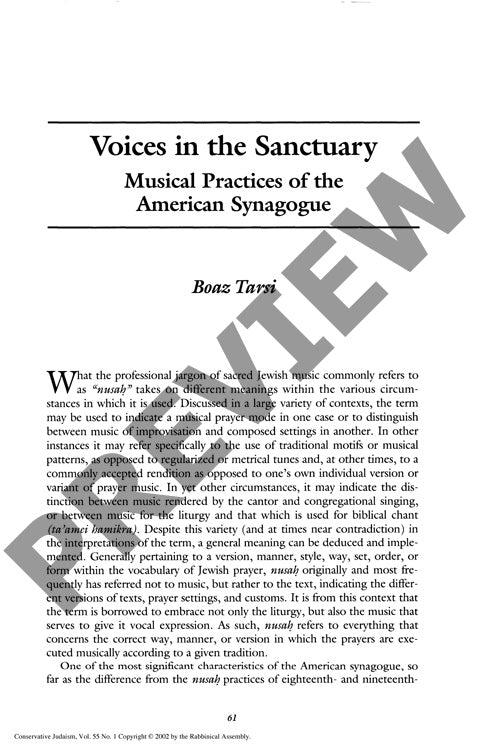Voices in the Sanctuary Musical Practice
Couldn't load pickup availability
Traditional Jewish liturgical music in American synagogues has undergone a profound transformation, departing significantly from its 18th- and 19th-century European roots. The intricate interplay between cantorial solos and congregational responses, once guided by precise textual and ritual contexts, has largely given way to simplified congregational singing. Through analysis of the Kedushah, Hatzi Kaddish, and Friday night services, this research reveals how American congregations have embraced metrical tunes over traditional cantorial practices and prescribed responsive structures. Comparative analysis of contemporary American practices against historical nusah requirements shows substantial influence from modern cantorial training programs, particularly those based on manuscripts of Adolph Katchko and Israel Alter. Additional forces reshaping synagogue music include youth camp musical practices, Hasidic influences, and the incorporation of Israeli popular songs into liturgical settings. These changes mirror broader shifts in Jewish-American religious life, including declining Hebrew literacy and evolving expectations for congregational participation. While these adaptations effectively serve contemporary American Jewish communities, they may represent an emerging sub-tradition within nusah Ashkenaz—though their historical brevity raises questions about their status as authentic tradition versus departure from established norms.

More Information
-
Physical Description
-
Publication Information
Published 2002
ISBN
-
Publication Credits
Boaz Tarsi

